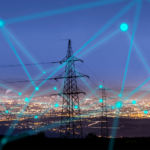Undoubtedly, corporate social responsibility is a fundamental tool for achieving sustainable development. It represents the companies’ commitment to social justice and environmental care. Starting with their own production practices, continuing with care for their workers, partners and customers, and ending with an effective contribution to the well-being of the local community in which they operate.
Here we explain what corporate social responsibility is, what its importance is and how it operates in the energy sector. We also present the example of two companies with good CSR performance.
What is corporate social responsibility?
Corporate social responsibility is the commitment of companies to their employees, society and the environment to improve the quality of life of the communities where they operate (Martínez, 2014).
It is an active and voluntary contribution to social, economic and environmental improvement. This involves actions to make their business and corporate activities compatible with care for the environment in which they operate (Oxfam, 2016).
Corporate social responsibility involves:
- Good working conditions
- Support for humanitarian causes
- And environmental care (Martinez, 2014).
The latter entails avoiding any type of contamination, minimizing environmental impacts and waste generation. It must also carry out a rationalization of the use of natural and energy resources and, of course, comply with current environmental legislation (Eisa, 2021).
Why corporate social responsibility is important
Some of the benefits of corporate social responsibility are as follows:
- Generates sustainable business.
- Improved labor market conditions.
- Take care of the environment.
- Improves production, generating customer satisfaction and loyalty.
- Increases employee motivation, loyalty and creativity.
- Improves the company’s public image.
- It positions the company better in the market and increases the possibility of receiving public aid due to the good image it projects.
- Saves costs and increases profitability through efficiency in the use of resources.
- Increases sales (Martinez, 2014).
According to the report Aproaching the Future 2019: Trends in Reputation and Intangible Management, 56% of companies have started to design some plan to ensure sustainability (CANVAS, 2019). It is expected that by 2030, when the Paris Agreement enters into force, 100 % will be reached.
On the other hand, the Sustainable Development Goals (SDGs) are the goal to be achieved by 78% of managers. Investors in these companies are also observing this type of actions and positively valuing the influence of these companies on their potential customers.
Among the most prominent SDGs, we could mention those related to the collaborative economy, labor flexibility and finding new formulas that guarantee competitiveness without generating waste (Ecolec, 2019).
Corporate social responsibility in Guatemala
In Guatemala, the corporate social responsibility movement began in 1998 with a group of committed leaders who recognized its importance and created CentraRSE (Centro para la Acción de la Responsabilidad Social Empresarial en Guatemala).
Founded in 2003, today it is an organization with more than 100 associated companies, belonging to more than 20 productive sectors of the country, which represent around 30% of Guatemala’s GDP and employ 150,000 families. Today, it has become the most influential coalition of companies promoting CSR in the country and one of the most important at the regional level (Computrabajo, n.d.).
Corporate social responsibility in the energy sector
The energy sector has a fundamental role to play in achieving a sustainable economic and social model. Some of the sector’s global challenges are energy efficiency, biodiversity and others linked to the stages of the value chain: generation, transportation, distribution and consumption.
Within the framework of the global challenges listed above, the main objectives of the work program in the electricity sector are the long-term security of energy supply, the identification of efficient solutions for the reduction of CO2 emissions and the promotion of dialogue with regulators in the definition of global energy policies. In addition to a specific line of work in the field of energy access in developing countries (Energy and Society, n.d.).
Sector companies highlighted for their approach to corporate social responsibility
Iberdrola (Spain)
It has a strong social commitment. As part of it, they have launched many initiatives in areas such as sports and education. Also in cooperation and aid to the most disadvantaged groups. All this, through the activity of foundations around the world and its International Volunteer Program in which, in 2019, 7,500 people participated.
This group is committed to the energy, cultural and social development of the communities in which it operates, and is a leader in promoting the SDGs and the fight against climate change (Iberdrola, 2021a).
It has committed to reduce its emissions intensity to 50 gCO2/kWh globally by 2030. This would achieve an 86% reduction over three decades. They are also working to achieve climate neutrality in Europe by 2030 and globally by 2050 (Iberdrola, 2021b).
Secacao (Guatemala)
It is a group of companies engaged in hydroelectric and reforestation projects. The Secacao, Candelaria and Choloma power plants and the Agroforestry Division’s forestry projects are located in the municipality of Senahú, department of Alta Verapaz. The Guayacán distributed generation plant is located in the municipality of Taxisxo, department of Santa Rosa (Grupo Secacao, n.d.).
In 2007, it created the Thirteen Waters Foundation to implement social and environmental projects in communities neighboring the power plants. Its objective is to promote the self-sustainable development of these rural areas, incorporating the capabilities of the beneficiary populations. In addition, it seeks to favor the conditions for the people of these communities to be the subjects of their own development.
Its areas or lines of work are:
- Environment (cross-cutting). They minimize their carbon footprint and ensure that their activities do not affect the quality of water, air or ecosystems.
- Economic development in 25 communities.
- Human development seeks to strengthen community leaders.
- In the area of health care, we promote care and check-ups for families, offer primary care and medical sessions at the foundation’s Casa de Salud, and transfer patients to local hospitals.
- In education, we are improving the infrastructure of educational facilities and ensuring that they are academically adequate, in addition to strengthening teachers.
- They share benefits with neighboring indigenous communities and establish partnerships with local governments (Grupo Secacao, n.d.).
Companies in the energy industry are increasingly responsible for environmental, social and economic aspects. Therefore, it is important that they implement corporate social responsibility actions and thus achieve universal access to modern energy services, improving energy efficiency and increasing the share of energy generated from renewable resources.






